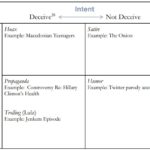How Section 230 Helps Sex Trafficking Victims (and SESTA Would Hurt Them) (Guest Blog Post)
by guest blogger Alex F. Levy [Eric’s introduction: Alex Levy teaches Human Trafficking and Human Markets at Notre Dame Law School. She has written a timely and provocative article, The Virtues of Unvirtuous Spaces, about Backpage and online sexual commerce….
Facebook Defeats Another Case Over Not Removing User Comments–La’Tiejira v. Facebook
In terms of legal doctrine, this case is virtually identical to the Cross v. Facebook case I recently blogged. In both cases, the plaintiff sued Facebook for not removing user posts. In both cases, Facebook won an anti-SLAPP motion (CA…

Sen. Portman Says SESTA Doesn’t Affect the Good Samaritan Defense. He’s Wrong
When introducing the Stop Enabling Sex Traffickers Act of 2017 (S. 1693, the Senate’s anti-Section 230 bill), Sen. Portman said (emphasis added): There are some groups who have been critical of this effort to hold backpage accountable and stop this…
Section 230 Helps Yahoo Defeat Lawsuit Over Online Harassment Campaign–Hall v. Yahoo
[It’s impossible to blog about Section 230 without reminding you that Congress is on the cusp of gutting it.] Thomas Hall is a lawyer and author. He claims he was targeted for email harassment by several individuals. He further claims…

‘Blatant Sales Pitch’ on LinkedIn Likely Violates Non-solicitation Clause–Mobile Mini v. Vevea
This is a noncompete dispute. Defendant Vevea worked for Mobile Mini. She signed an agreement with Mobile Mini restricting her post-employment activities. Specifically, she agreed: not to work in the Portable Storage Business at a location within fifty miles of…

1H 2017 Quick Links Part 7 (Fake News, RTBF, Censorship, Extremist Content)
Fake News * NY Times: From Headline to Photograph, a Fake News Masterpiece * Data and Society: Media Manipulation and Disinformation Online * Wired: Inside the Macedonian Fake-News Complex * Mark Verstraete, Derek E. Bambauer, & Jane R. Bambauer, Identifying…

Senate’s “Stop Enabling Sex Traffickers Act of 2017”–and Section 230’s Imminent Evisceration
A new anti-Section 230 bill, the Stop Enabling Sex Traffickers Act of 2017, will be introduced in the Senate imminently, perhaps tomorrow. [UPDATE: It has been introduced as S. 1693]. It is being introduced by six senators (Senators Portman, Blumenthal,…
1H 2017 Quick Links, Part 6 (Defamation, Section 230, Consumer Reviews)
Defamation * Gillon v. Bernstein, Civ. No. 2:12-4891 (WJM) (D.N.J. Nov. 3, 2016). No liability for negative Ripoff Report. * Jackson v. Mayweather, 2017 WL 1131869 (Cal. Ct. App. March 27, 2017). CA’s anti-SLAPP law protects the following Facebook/Instagram post: “the real reason me…

Politician Can’t Ban Constituent From Her Official Facebook Page–Davison v. Loudoun County Supervisors
This is a First Amendment social media case, where the plaintiff was banned for a 12 hour period from the defendant’s ostensibly official Facebook page. My prior blog post. Following a bench trial, the court finds in favor of plaintiff…
Court Can’t Ban Resident From Discussing HOA Online–Fox v. Hamptons at MetroWest Condos
This is the third time this year I’m blogging about homeowners’ associations suppressing online speech (see my posts on the Revock and Milazzo cases). I’m pretty sure HOA online censorship is a growth industry (indeed, my CRFA primer calls out…
